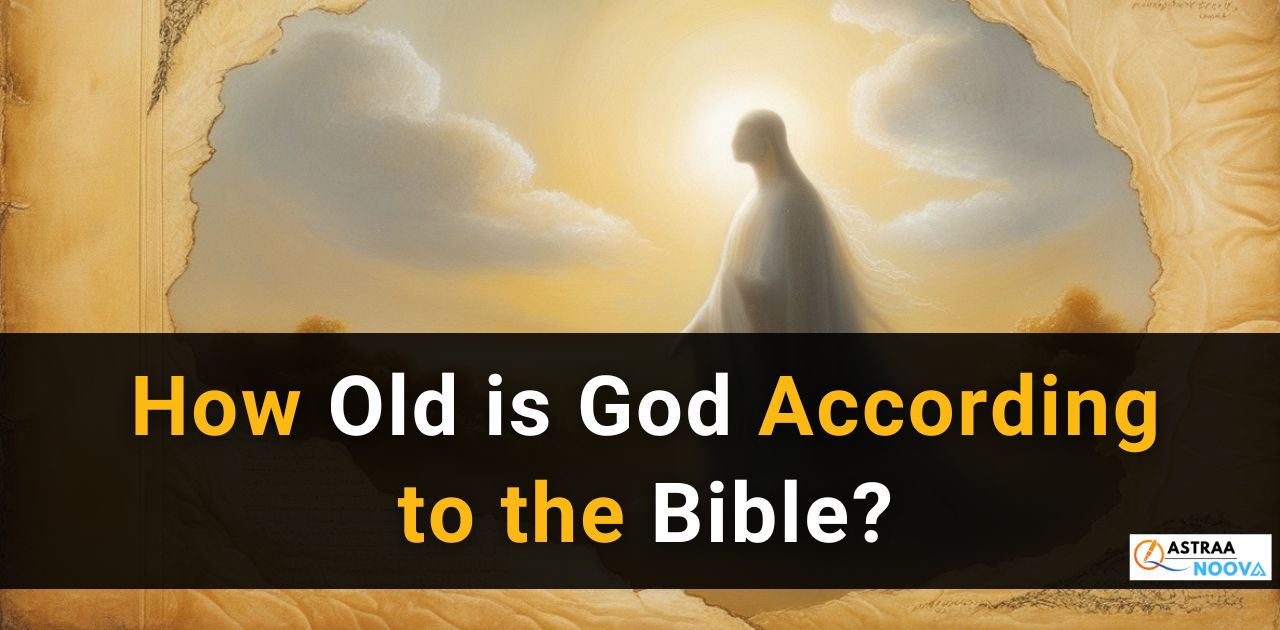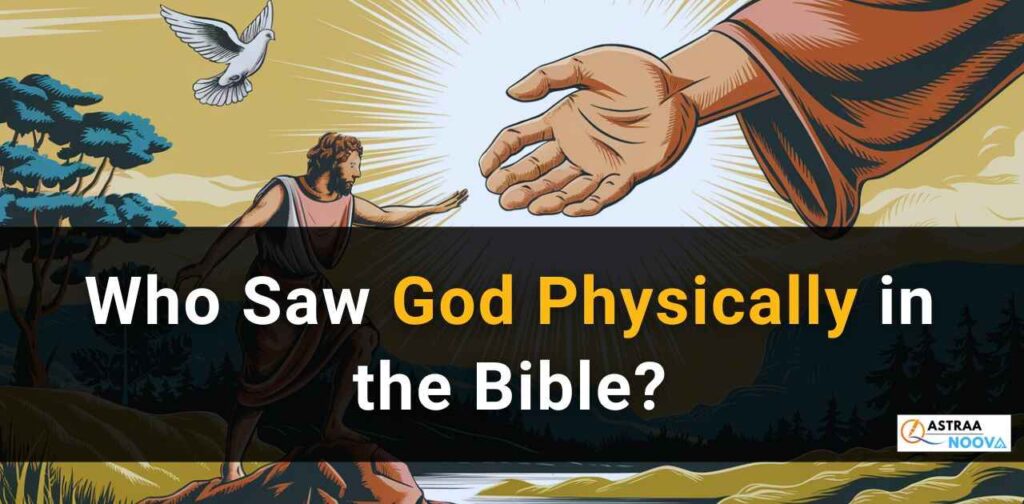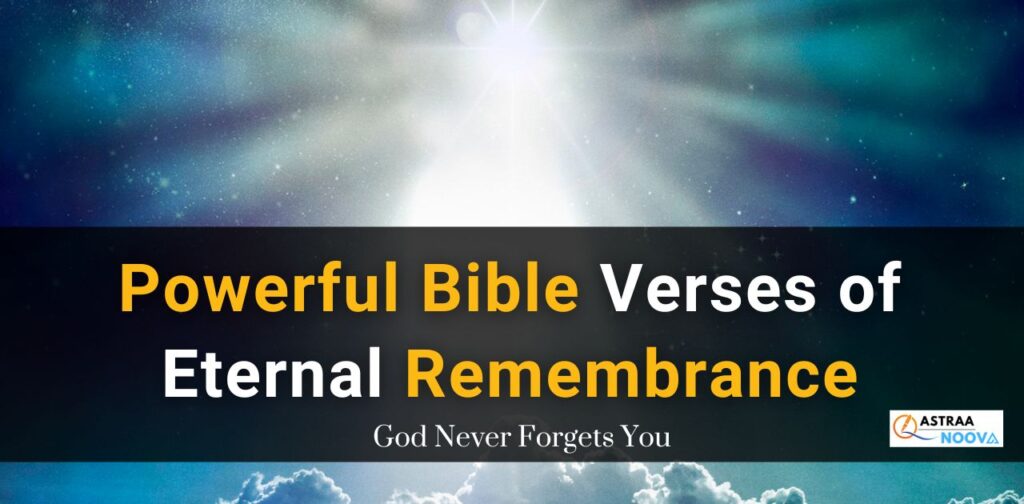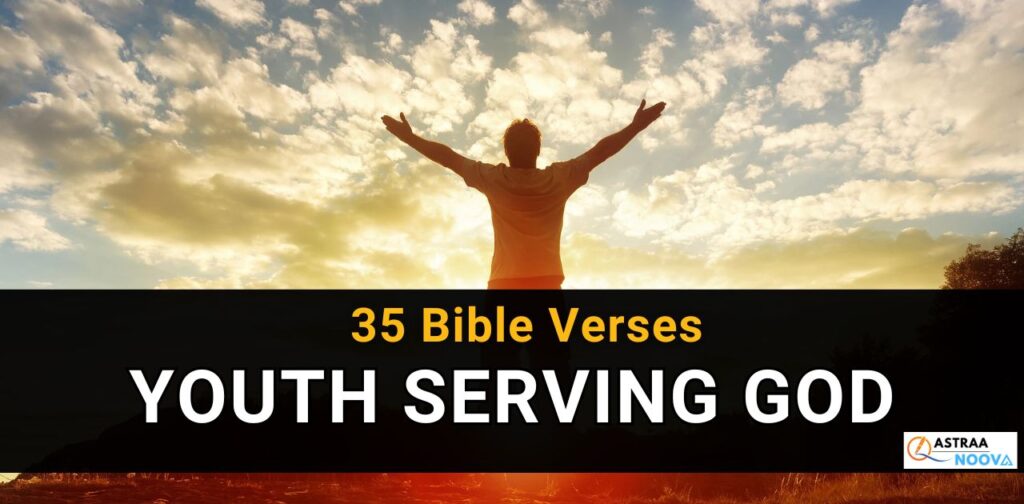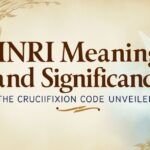The question of God’s age has intrigued theologians, philosophers, and believers for millennia. In our time-bound existence, we struggle to comprehend an entity that exists beyond the constraints of temporal measurement. The Bible offers a profound perspective on divine eternity, presenting God as a being who transcends time itself, existing before creation and continuing beyond the boundaries of human understanding.
Direct Biblical Statements About God’s Age
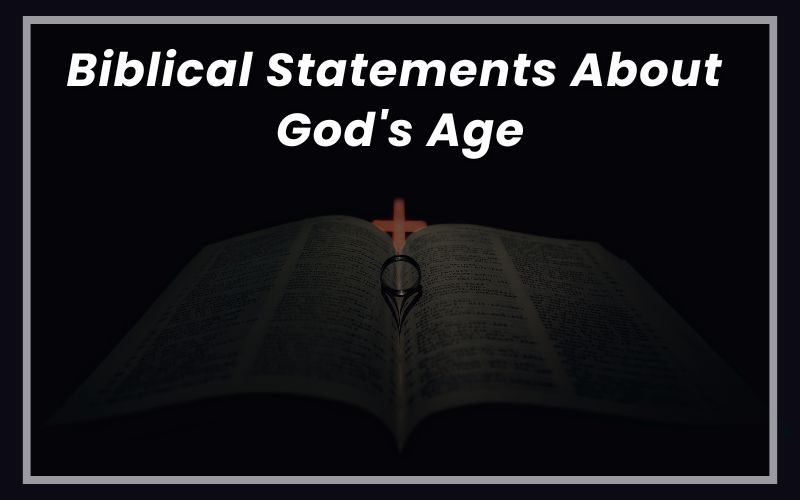
Before Creation
The biblical narrative provides remarkable insights into God’s existence prior to the universe’s formation. In Psalm 90:2, we encounter a powerful declaration that captures the essence of divine timelessness:
“Before the mountains were brought forth, or ever you had formed the earth and the world, from everlasting to everlasting you are God.”
This verse is a theological masterpiece, revealing God’s eternal nature. The phrase “from everlasting to everlasting” communicates a profound concept of existence that defies human comprehension. Similarly, Proverbs 8:22-23 offers additional testimony:
“The Lord possessed me at the beginning of his way, before his works of old. I was set up from everlasting, from the beginning, before the earth was.”
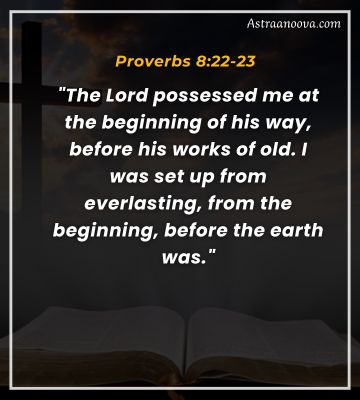
The depth of these scriptural statements challenges our linear understanding of time. They present God as an entity existing before the very concept of temporal progression, suggesting a reality that precedes physical creation.
John 17:5 further illuminates this concept of pre-creation existence:
“And now, Father, glorify me in your own presence with the glory that I had with you before the world existed.”
These biblical passages consistently point to a divine reality that existed before time itself. They invite believers and seekers to contemplate an existence that transcends our limited temporal perception.
Eternal Existence
The biblical texts provide numerous references that emphasize God’s unending nature. 1 Timothy 1:17 offers a profound description:
“To the King eternal, immortal, invisible, the only God, be honor and glory forever and ever.”
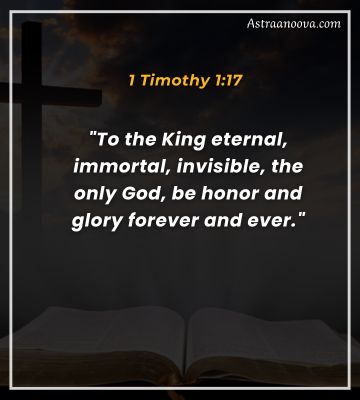
Deuteronomy 33:27 presents another powerful image of divine perpetuity:
“The eternal God is your dwelling place, and underneath are the everlasting arms.”
Isaiah 40:28 reinforces this understanding, describing God as:
“The Lord is the everlasting God, the Creator of the ends of the earth.”
These verses collectively paint a picture of a God who is not merely long-lasting, but truly eternal existing continuously without interruption or limitation.
No Beginning or End
The concept of divine timelessness reaches its most explicit articulation in the Revelation passages. Revelation 1:8 proclaims:
“I am the Alpha and the Omega, says the Lord God, who is and who was and who is to come, the Almighty.”
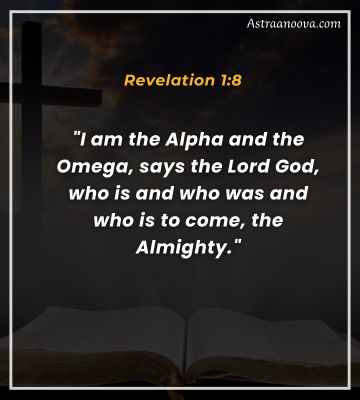
Revelation 22:13 echoes this sentiment:
“I am the Alpha and the Omega, the first and the last, the beginning and the end.”
Hebrews 7:3 provides an extraordinary description, speaking of a divine being:
“Having neither beginning of days nor end of life”
Understanding Time in the Bible
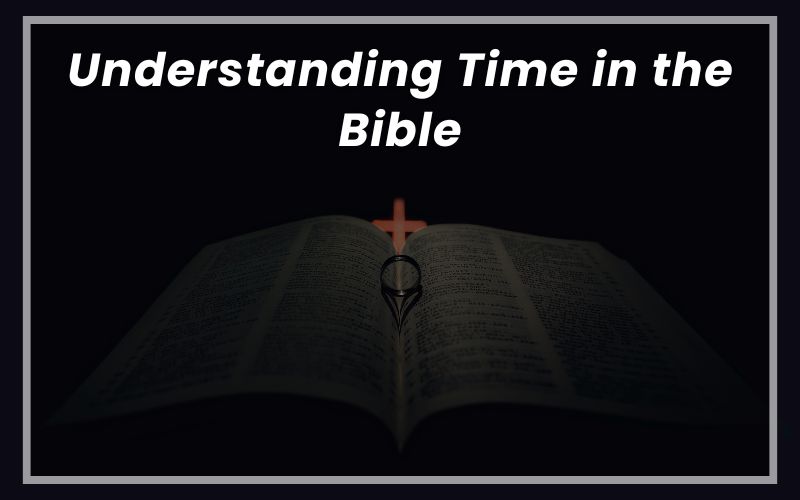
God’s Creation of Time
Genesis 1:1 introduces the foundational moment of temporal creation:
“In the beginning God created the heavens and the earth.”
This verse marks the inception of our understood reality. Genesis 1:14 further elaborates on the divine establishment of time-measuring mechanisms:
“Let there be lights in the expanse of the heavens to separate the day from the night. And let them be for signs and for seasons, and for days and years.”
These scriptural passages reveal a profound theological concept: God not only exists before time but actively designs the very framework through which humans comprehend temporal progression. The creation of celestial time markers demonstrates divine intentionality in structuring our perception of existence.
Read Also >> Who Saw God Physically in the Bible? 8 Amazing Stories
God’s Relationship to Time
2 Peter 3:8 offers a remarkable perspective on divine time perception:
“With the Lord one day is as a thousand years, and a thousand years as one day.”
This verse challenges human understanding, suggesting that God’s relationship with time is fundamentally different from our linear experience. Time is not a constraint for the divine being but a malleable construct entirely subject to divine will.
Psalm 102:24-27 provides additional insight into this timeless nature:
“Your years endure throughout all generations… they will perish, but you will remain”
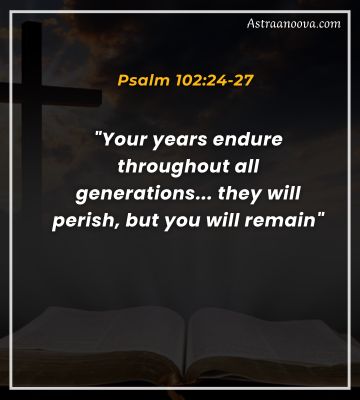
Biblical Timeline and God’s Existence
Before Creation
The biblical narrative consistently portrays God as existing in a state of complete independence from temporal constraints. Unlike created beings, the divine entity requires no origin point and experiences no progression or deterioration.
Creation Week
During the creation narrative, God establishes not just physical structures but the very mechanisms of temporal measurement. The day/night cycle, celestial movements, and seasonal patterns emerge as deliberate divine designs, revealing a creator who transcends the system being created.
Throughout History
Biblical accounts demonstrate God’s unchanging presence across different historical epochs. From the patriarchal narratives to prophetic revelations, the divine presence remains constant, unaffected by historical transformations.
Future Eternity
Revelation 1:4 captures this eternal continuum:
“Who is and who was and who is to come”
This description emphasizes a perpetual existence that simultaneously encompasses past, present, and future, defying human temporal comprehension.
God’s Self-Revelation About His Age
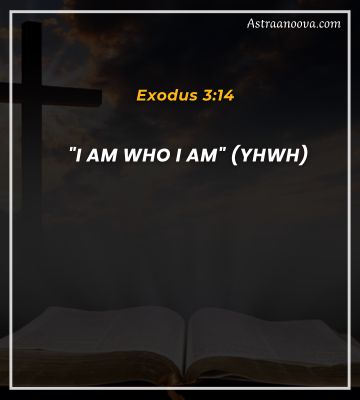
The Meaning of “I AM”
Hebrew Name Explanation
When God revealed Himself to Moses in Exodus 3:14, He proclaimed a name that would become foundational to understanding divine nature:
“I AM WHO I AM” (YHWH)
This profound self-identification transcends typical nomenclature. The Hebrew YHWH represents more than a simple name; it’s a declaration of eternal existence. The phrase communicates an eternal present that exists independently of temporal progression, signifying a being who is self-existent and unchanging.
When exploring the question “how old is God?”, the Bible provides a profound answer through His sacred name, Jehovah. This name, revered by the Israelites who feared to even speak it, literally means “I am.” As Easton’s Bible Dictionary explains, this highlights God’s unchanging, eternal, and self-existent nature.
He exists without age, a birthday, or even a funeral, underscoring His timeless existence. The final answer lies in the very essence of God He transcends time itself, always present, unbound by beginnings or endings.
Linguistically, this name represents a radical theological concept. Unlike human names that describe or categorize, YHWH describes a mode of existence that defies traditional understanding. It suggests a divine presence that is perpetually active, continuously present, and fundamentally independent of time’s linear constraints.
Biblical Usage
The name appears over 6,800 times in the Old Testament, consistently representing God’s unchanging character. Each occurrence reinforces the concept of divine permanence, highlighting a being whose essence remains constant through all historical and existential transformations.
Other Biblical Names Indicating God’s Ageless Nature
El Olam (עוֹלָם אֵל)
First introduced in the biblical narrative, El Olam translates as “The Everlasting God.” This name, rich with theological significance, emphasizes God’s eternal existence beyond temporal boundaries. It communicates a divine nature that precedes and supersedes all created reality.
Ancient of Days
In Daniel 7:9, a prophetic vision presents God as the Ancient of Days, a symbolic representation of eternal authority. This description transcends mere age, representing a divine presence that encompasses all of history while remaining undiminished by temporal passage.
Does God Have a Beginning?
Biblical testimony consistently and emphatically rejects the notion of divine origin. Psalm 93:2 declares:
“Your throne is established from of old; you are from everlasting”
Isaiah 43:13 further reinforces this perspective:
“From eternity I am He”
These passages communicate a fundamental theological principle: God exists without a starting point, challenging human comprehension of existence and origin.
Can We Calculate God’s Age?
The very premise of calculating divine age becomes nonsensical when confronted with biblical theology. God exists beyond temporal frameworks, having created time itself. Human measurement tools become irrelevant when addressing an entity that transcends dimensional limitations.
Biblical Summary of God’s Age
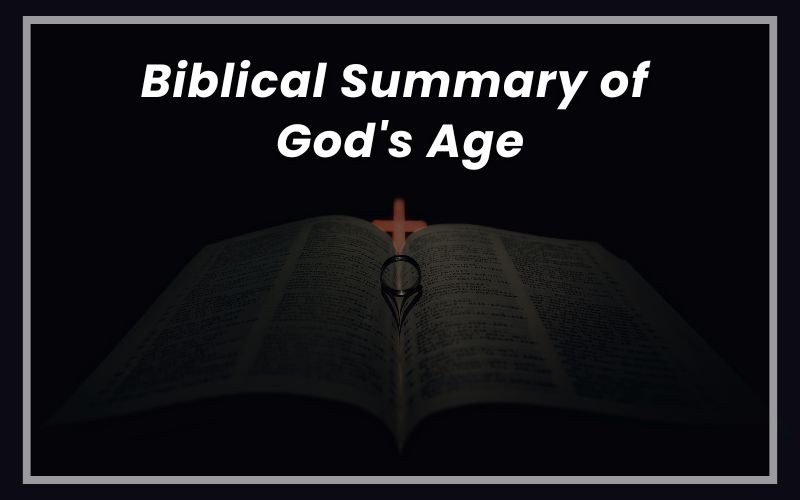
God is Eternal
Scripture provides a consistent testimony of divine timelessness. Multiple divine names, prophetic visions, and theological declarations converge to present a unified understanding of an eternal God who knows no beginning and no end.
Biblical Proof
The compilation of scriptural evidence offers overwhelming support for God’s timeless nature. From poetic declarations in Psalms to prophetic visions in Revelation, the biblical narrative presents a comprehensive picture of divine eternality.
Key Truth
The fundamental understanding emerges: God does not possess age in human terms. Instead, He exists in an eternal present, creating and inhabiting time while remaining fundamentally unchanged and unbound by temporal constraints.
Conclusion: Understanding God’s Timeless Nature
The exploration of God’s age reveals far more than a simple numerical measurement. It invites us into a profound theological mystery that challenges our fundamental understanding of existence. The biblical narrative presents God not as a being who exists within time, but as the very architect of temporal reality.
Consider the remarkable implications of this understanding. While humans are bound by chronological progression, marked by birth, aging, and eventual mortality, the divine essence exists in a state of perpetual, unchanging presence. Psalm 102:27 captures this beautifully:
“But you are the same, and your years have no end”
This concept of divine eternality offers more than an abstract theological proposition. It provides profound comfort and perspective for believers. God’s unchanging nature means His love, promises, and character remain constant through human generations, historical transformations, and cosmic changes.
The biblical testimony consistently demonstrates that asking “How old is God?” fundamentally misunderstands divine nature. Time is a created construct, and the Creator exists beyond its limitations. God is not measured by years or moments but represents an eternal, continuous presence that encompasses all of existence.
FAQ’s
How old is God exactly?
God has no age. He is eternal, existing outside of time, with no beginning or end according to biblical theology.
How long has God been alive?
God is not “alive” in a temporal sense. He is eternal, existing before creation and continuing beyond all temporal measurements.
Can God live forever?
God doesn’t just “live forever” He is existence itself. Biblical scriptures describe Him as the eternal, unchanging divine being who transcends time.
When was God born and died?
God was never born and cannot die. He is self-existent, without origin or conclusion, existing in an eternal present.
What is God’s real name?
Biblical names include YHWH (I AM), El Olam (Eternal God), and Alpha and Omega, all emphasizing His timeless nature.
Where is God born at?
God is not born. He is the creator of existence, existing before physical space, time, or location.
How old is God in 2024?
The concept of age is irrelevant to God. He exists beyond temporal measurements, creating and transcending time itself.
Why did God create us?
Biblical theology suggests God created humans for relationship, to share His love, and to reflect His divine characteristics.
What age will we be in heaven?
Biblical descriptions suggest a transformed existence where earthly concepts like age become meaningless.

Multilingual faith educator exploring connections between language, spirituality, and dream symbolism.
